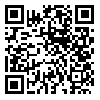Volume 21, Issue 83 (10-2022)
QJCR 2022, 21(83): 193-210 |
Back to browse issues page
Download citation:
BibTeX | RIS | EndNote | Medlars | ProCite | Reference Manager | RefWorks
Send citation to:



BibTeX | RIS | EndNote | Medlars | ProCite | Reference Manager | RefWorks
Send citation to:
badakhshian S, samiee F. The effectiveness of a social rehabilitation program based on social cognitive theory on the self-efficacy of people with spinal cord injury. QJCR 2022; 21 (83) : 7
URL: http://irancounseling.ir/journal/article-1-1693-en.html
URL: http://irancounseling.ir/journal/article-1-1693-en.html
university of Isfahan
Abstract: (4606 Views)
Abstract
Introduction: Spinal cord injury is one of the problems of human societies. The purpose of this study is to focus on the self-efficacy of people with spinal cord injury. Method: The design used in this study was a single case of type A-B. For this purpose, using purposive sampling, 3 people with spinal cord injury were selected. And received 8 sessions of individual intervention, occupational rehabilitation program training based on social cognitive theory. Data collection tool was Lutans psychological capital questionnaire. The results were analyzed using visual analysis, change reliability index (RCI) and recovery percentage (MPI). Results: The results showed that a rehabilitation program based on social cognitive theory can increase the self-efficacy of people with spinal cord injury. Conclusion: Using a job rehabilitation program and utilizing social cognitive theory that provides guidance and skills training such as substitution or role modeling, social encouragement or positive feedback, and the mobilization of psychological capital as well as information. In the case of able-bodied employment and vocational training, self-efficacy can be increased in people with spinal cord injury.
Introduction: Spinal cord injury is one of the problems of human societies. The purpose of this study is to focus on the self-efficacy of people with spinal cord injury. Method: The design used in this study was a single case of type A-B. For this purpose, using purposive sampling, 3 people with spinal cord injury were selected. And received 8 sessions of individual intervention, occupational rehabilitation program training based on social cognitive theory. Data collection tool was Lutans psychological capital questionnaire. The results were analyzed using visual analysis, change reliability index (RCI) and recovery percentage (MPI). Results: The results showed that a rehabilitation program based on social cognitive theory can increase the self-efficacy of people with spinal cord injury. Conclusion: Using a job rehabilitation program and utilizing social cognitive theory that provides guidance and skills training such as substitution or role modeling, social encouragement or positive feedback, and the mobilization of psychological capital as well as information. In the case of able-bodied employment and vocational training, self-efficacy can be increased in people with spinal cord injury.
Article number: 7
Type of Study: Research |
Subject:
Rehabilitation counseling
Received: 2022/02/7 | Accepted: 2022/10/25 | Published: 2022/12/15
Received: 2022/02/7 | Accepted: 2022/10/25 | Published: 2022/12/15
Send email to the article author
| Rights and permissions | |
 |
This work is licensed under a Creative Commons Attribution-NonCommercial 4.0 International License. |






